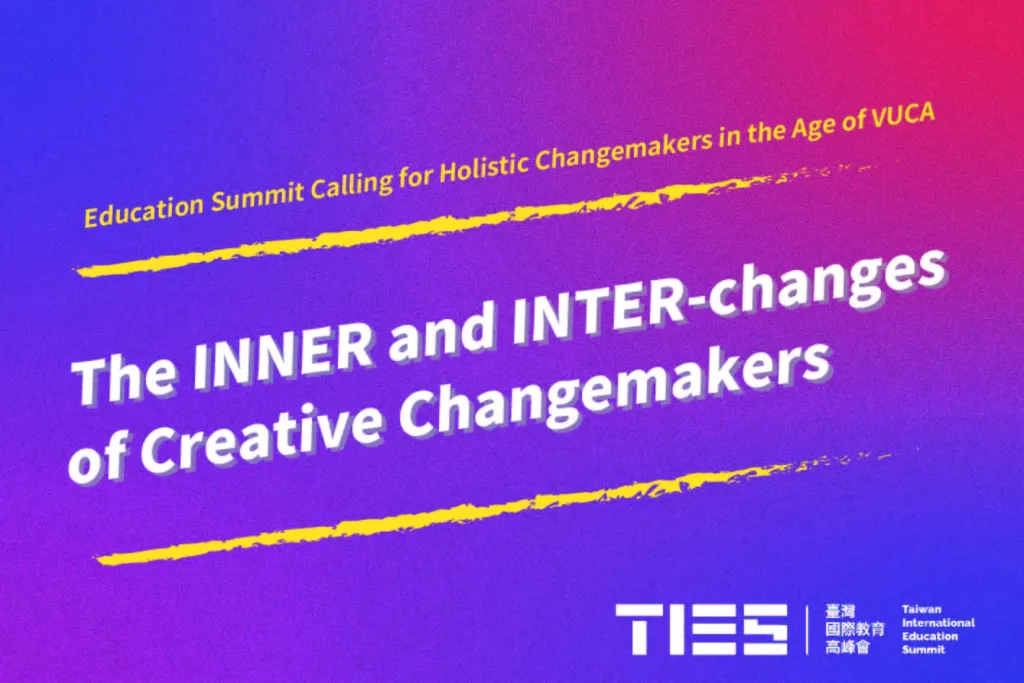
June 29-30, 2021, TAIPEI — On behalf of the Taiwan National Development Council, ZA Share is hosting the 2021 Taiwan International Education Summit (TIES) completely online from June 29 to 30. The theme of TIES this year is The INNER and INTER-changes of Creative Changemakers, with the aim to move beyond the narrow focus of the technical or financial needs of changemakers seeking the common good, to bring public and key stakeholders’ attention to the holistic needs for their nourishment and growth as “whole persons.”
Curated in the spirit of human ecology, 2021 TIES will be split into four tracks to cover the Intrapersonal, Interpersonal, Social, and Ecological Dimensions of a “Changemaker’s Journey” as a whole person, to foster interdisciplinary learning and the systemic awareness of the world’s VUCA (volatile, uncertain, complex, ambiguous) nature, as amplified by the outspread of COVID-19.
In each of the four tracks, there will be an invited expert from both the Eastern and Western countries, and a selected Open Mic Representative selected from a pool of self-nominated speakers to bring an “Intercultural Mash-up” of perspectives. The line of 12 speakers range from world-renowned Sir Geoff Mulgan, systems and collective intelligence scientist, former head of policy in the UK Prime Minister’s office, and co-founder of Social Innovation Exchange (SIX), to a group of self-nominated 7th-graders from Taoyuan Chungli Junior High School who’ve dedicated themselves to addressing the challenges arose with new immigrants in their school and communities.
The format of TIES creates a fully immersive digital bilingual learning experience, which integrates active and thematic learning from the pre-event Open Mic Speaker self-nomination challenge to the highly interactive online TIES itself, to openly demonstrate the holistic spirit of Taiwan’s National 12-Year Basic Education in a bilingual, digital, and public context. The integral design of TIES also manifests the National Development Council’s determination to bridge its bilingual nation, education innovation, digital transformation, and regional revitalization agendas.
2021 TIES is completely free to attend. The TIES Opening Ceremony/Press Conference will be held online at 14:30, June 29, 2021 (Taipei Time, UTC+8).
For more information, please visit: https://forms.gle/FdkEVXtMZkzRFA4r9 (Registration Form in English)
You must be logged in to post a comment.